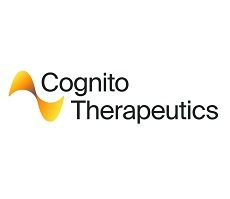 Cognito Therapeutics has announced “robust, lobe-specific” changes in white matter volume and myelination in Alzheimer’s disease patients following six months of non-invasive gamma stimulation therapy using its at-home wearable device.
Cognito Therapeutics has announced “robust, lobe-specific” changes in white matter volume and myelination in Alzheimer’s disease patients following six months of non-invasive gamma stimulation therapy using its at-home wearable device.
The company presented new imaging data at the 2023 Alzheimer’s Association International Conference (AAIC; 16–20 July, Amsterdam, The Netherlands) from the Phase 2 OVERTURE study, reporting that its proprietary gamma sensory stimulation therapy reduced the decline in white matter/grey matter (WM/GM) contrast in the entorhinal region.
The entorhinal region of the brain is of particular interest in the early stages of Alzheimer’s, a press release from Cognito states, and early intervention with the company’s therapy may result in enhanced tissue preservation and reduced neurological damage. And, since neuronal activities, particularly network oscillations, have been shown to promote axonal myelination, Cognito conducted a post-hoc analysis to examine how its proprietary non-invasive gamma stimulation affected white matter volume and myelination in different cortical lobes in patients with Alzheimer’s.
The new imaging data reported from OVERTURE showed that white matter atrophy and demyelination were statistically significantly reduced in all lobes of the left hemisphere—and trended towards reduction in the right hemisphere—in patients on Cognito therapy versus sham, demonstrating that sensory stimulation (40Hz) may reduce the neurodegeneration associated with Alzheimer’s. A total of 135 subjects were screened, of whom 74 were randomised and 53 completed the study—20 in the sham arm and 33 in the active arm.
Daily use of the gamma sensory stimulation system was found to be safe with minimal side-effects. Magnetic resonance imaging (MRI) data confirmed the absence of amyloid-related imaging abnormalities (ARIA) in participants. High adherence to daily therapy was established based on device-recorded usage. In assessing cognitive and functional abilities, changes in Alzheimer’s disease cooperative study-activities of daily living (ADCS-ADL) and mini-mental state examination (MMSE) scores were statistically significant between the sham and treatment arms too, demonstrating a significant slowing in functional and cognitive decline in the treatment group.
In addition, quantitative MRI analysis revealed a significantly reduced whole brain, white matter, and occipital lobe volume loss, along with a significantly attenuated reduction in occipital cortical thickness in the active arm relative to the sham group. These clinical benefits were achieved independent of a reduction in amyloid plaque loads. Following six months of treatment, patients in the Cognito treatment group demonstrated a 0.06±0.99% decrease and the placebo group demonstrated a 1.26±1.04% decrease in WM/GM contrast (p<0.022).
“Our Phase 2 OVERTURE study results continue to demonstrate that daily, proprietary gamma sensory stimulation is safe and well tolerated,” said Brent Vaughan, CEO of Cognito. “Patients in the active arm demonstrated a reduction in decline in functional and cognitive abilities, and showed reduced brain atrophy. Our upcoming pivotal HOPE clinical trial will further evaluate the clinical efficacy of our treatment, and also evaluate relevant downstream mechanisms in Alzheimer’s disease patients. We are thrilled to report these findings, which demonstrate the potential of our non-invasive neuromodulation therapy in reducing white matter atrophy, preserving axons, with no ARIA events reported to date in patients on Cognito therapy.”
The company’s recent release notes that the Cognito device is limited by US law to investigational use only and is not available for sale.











